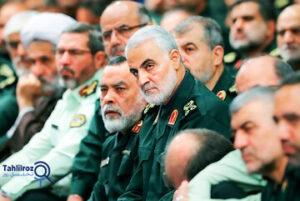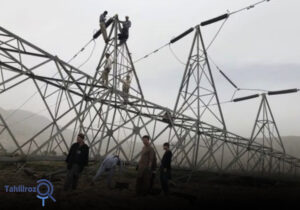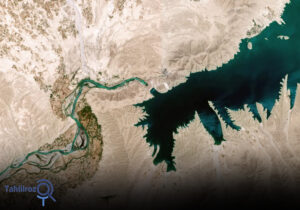After taking control of Afghanistan, the Taliban has seriously followed the ban on girls education in Afghanistan and women’s jobs. In the past two years, the high-ranking officials of the government of this group have not had any flexibility regarding the education of girls and they continue to put pressure on the refusal of girls’ education, even blocking courses and private schools that are secretly providing educational services to girls.
This is despite the fact that during this period, with the exception of scattered women’s protests inside Afghanistan, all criticisms and reactions have been made from outside Afghanistan regarding this issue.
But recently Maulvi Abdul Salam Zaeef, one of the prominent members of the Taliban, who was the ambassador of the Taliban in Pakistan during the first period of the government of this group and has been imprisoned in Guantanamo, has clearly announced in an interview with Tolo TV that no religious scholar in the world is against the education of girls.
Considering that the Taliban have so far reacted negatively to criticism from outside Afghanistan or from figures outside their group, now that the criticisms and recommendations have started from inside the country, especially from their own prominent members such as Maulvi Zaeef, we need to know how the Taliban will react to this issue?
Is it possible for the Taliban to be flexible and comply with the humanitarian and Islamic demands of the Afghan people? If internal criticisms and demands are ignored and disrespected by the Taliban, just like criticisms and reactions outside Afghanistan, how will the possible scenarios of the future turn out to be?
Taliban’s ban on girls education in Afghanistan
In the first step, the Taliban banned girls from going to school above the sixth grade. This action of the Taliban brought widespread international reactions and criticisms. Many leaders of the countries and especially the officials of the United Nations and other international organizations showed reactions and asked the Taliban to open the gates of schools for girls.
Even the ambassadors and high-ranking officials of many countries met and discussed with some Taliban officials in this regard, and the Taliban made various promises in response to these demands of the region and the world.
But unfortunately, not only the schools were not reopened for girls, but the Taliban also closed the universities to girls in the winter 1401 (early 2023).
Despite widespread regional and global criticism of these actions of the Taliban, this group continues insist on its position and have increased its intensity day by day, and the banning of girls from participating in the 1402 girls’ university entrance exam is a strong proof of this claim.
Therefore, with this kind of Taliban’s ban on girls education in Afghanistan, it is unlikely that girls see universities and schools soon, and they will continue to live in homes with the current restrictions, deprived of education and training.

The beginning of domestic criticism of the Taliban’s ban on girls education in Afghanistan and the future scenarios
As mentioned, until now, there have been more criticisms and protests from outside Afghanistan regarding the ban on girls’ education. However, the current atmosphere in Afghanistan is such that people have taken the opportunity to criticize and the fate of protesters and critics usually ends in arrest and imprisonment.
Some Taliban officials have expressed their displeasure with the ban on girls education in Afghanistan, although these protests were mostly indirect; But recently, Maulvi Abdul Salam Zaeef, one of the prominent former members of the Taliban and a prisoner in Guantanamo, openly criticized the ban on girls’ education and advised the Taliban not to confront religious scholars and find a way to solve this issue.
Regarding whether these criticisms and recommendations can be effective or not, it seems that the possibility that the Taliban will listen to the criticisms and recommendations of Zaeef, but in the end, the Taliban have no choice but to comply with these criticisms and the people’s demands.
Because domestic criticisms and dissatisfactions are not like criticisms outside of Afghanistan. What’s more, internal criticisms and dissatisfactions gradually lead to rebellion and create serious challenges for the Taliban government.

The Taliban may think that they can continue their rule by creating an atmosphere of suffocation, intimidation and terror, but such calculations have always turned out to be wrong, and history has shown that authoritarian and totalitarian governments have not had a happy ending.
Therefore, if the Taliban do not listen to these advices and criticisms and ignore these criticisms and complaints, the following scenario may be waiting for Afghanistan:
- The continuation of preventing girls from getting an education and a possible scenario for the future of Afghanistan
The author of these lines believes that the Taliban’s ban on girls education in Afghanistan and the continuation of the current policy will lead to uncontrollable challenges.
Because today’s generation of Afghanistan is more sensitive to their destiny than in the past and they understand very well that the deprivation of girls from education will destroy the future of their country and this is the reason and motivation for them to try to put pressure on the Taliban in various ways to reopen schools and universities.
Considering that the performance of the Taliban in the past and present has shown that they are inflexible, autocratic and self-righteous and they are not willing to accept the people’s demands under any circumstances and they deeply believe in the saying that “the leader and ruler is always right”; Therefore, it is regrettable to say that rebellions, uncontrollable violence and even civil wars, which might result in outside interventions, are waiting for Afghanistan.

Javid Yousefi, is an Afghan Analyst
Translator: Mohsen Shahrafiee












